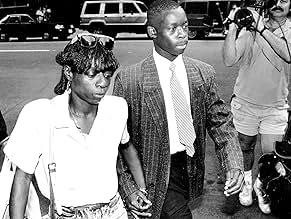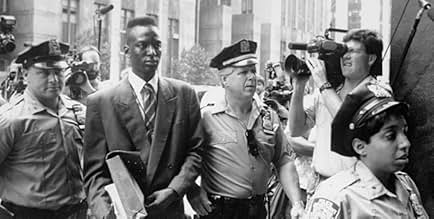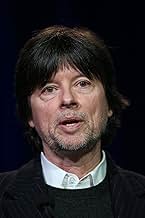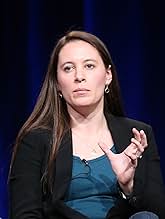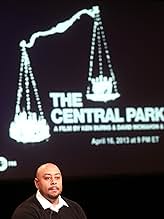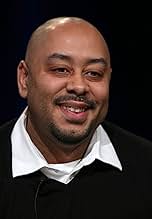Aggiungi una trama nella tua linguaA documentary that examines the 1989 case of five black and Latino teenagers who were convicted of raping a white woman in Central Park. After having spent between 6 and 13 years each in pri... Leggi tuttoA documentary that examines the 1989 case of five black and Latino teenagers who were convicted of raping a white woman in Central Park. After having spent between 6 and 13 years each in prison, a serial rapist confessed to the crime.A documentary that examines the 1989 case of five black and Latino teenagers who were convicted of raping a white woman in Central Park. After having spent between 6 and 13 years each in prison, a serial rapist confessed to the crime.
- Regia
- Sceneggiatura
- Star
- Premi
- 10 vittorie e 18 candidature totali
- Self - Wrongfully Convicted
- (as Korey Wise)
- Self - Confessed Rapist
- (filmato d'archivio)
- (audio di repertorio)
- Self - Reverend
- (as Rev. Calvin Butts)
Recensioni in evidenza
THE CENTRAL PARK FIVE is very important in showing the other side of the story. It definitely has its slant, as any documentary will, but it makes a strong argument for the basic fact that five teenaged boys were convicted solely because of coerced and contradictory confessions to the crime after hours of being interrogated and played off against one another with a complete disregard for the lack of direct evidence against them. It clearly shows how this can and does happen far more often than many of us want to think. It's also very revealing of how dangerous public emotion and outrage, regardless of its focus, can be.
Unfortunately, the NYPD, the prosecutors in the case, and everyone else responsible for the convictions declined to speak to Directors Ken and Sarah Burns, which is very telling but also limits the scope of the film. THE CENTRAL PARK FIVE is dominated by interviews with the CP5 and their relatives, obviously a crucial ingredient, but it becomes repetitive. There are, however, important comments from then-Mayor Ed Koch, who was all for conviction and serious punishment of the CP5 in 1989 but has now apparently changed his mind. The brief input by NYC historian Craig Steven Wilder and several others also adds a great deal.
One of the strongest aspects of THE CENTRAL PARK FIVE is the brief sociological perspective of New York City's racially polarized, have/have-not environment during the 1970s and 80s. Not only is it elucidating in its own right, it also provides background and something in the way of explanation for the wrongful conviction of the CP5.
Some of the more negative reviews have criticized THE CENTRAL PARK FIVE simply for being "boring," and at the risk of sounding crass, I see what they mean. While this is an important miscarriage of justice that should not be ignored, the repetitiveness and narrow scope of the film will inevitably limit its mass appeal. Anyone with a serious interest in this case and wrongful convictions in general, however, will probably find its two-hour length well-worth sitting through.
More analysis of the details that led to the wrongful convictions would have been helpful, e.g., the term "wilding." One of the CP5 confessed to police that he and a number of others were "wilding" in Central Park on the night of the crime. The term "wilding" is roughly equivalent to "raising hell," the usual term-of-choice when I was a kid in the late '70s/early '80s. "Raising hell" could, of course, refer to anything from driving fast, drinking beer, and talking loudly and irreverently (as we meant it) to violent felonies. More discussion of how misinterpretations of the loose term "wilding" were a critical factor in the conviction would have added some depth to this documentary.
Does the film make its case without flaws? No. The deck is too stacked. They should have allowed some representative of the police or D.A.'s office to explain themselves. Michael F. Armstrong, counsel for the NYPD, says he spent half-a-day being interviewed on camera for the film and was then not included in the final cut. Some attention should have been given to what these five boys were doing in the park that night and what other crimes they themselves might have been implicated in. Yes, they describe some acts they saw being committed by other boys and either outright deny their involvement or couch it in vague terms. I think it would have been good to know if the police had direct evidence of these boys' participation in other crimes that night. For one thing, it would mean these kids might not have been the saints they're made out to be, which of course doesn't justify false accusations and wrongful convictions, as the most vocal critics of this film seem to think, but it means recognizing a significant gray area here. If they actually did participate in the mob violence that night, some attention might have been usefully paid to the whole issue of how seemingly otherwise good kids from poor but stable homes with fathers present in their lives can get caught up in that kind of lawlessness.
Also, more importantly, they should have had some expert on hand to address the whole phenomenon of false or coerced confessions and give their objective assessment of this particular case and perhaps give other known examples of established false confessions, just to provide some context and answer those critics who stand by the notion of absolute guilt based on confession. It's touched on in a couple of the interviews, but not by a recognized expert on the issue and not in any depth.
Still, it's a powerful piece and has far fewer Ken Burns-style gimmicks than we see in his other films. He manages to stay out of his own way for much of the time and let the interview subjects have their say. Maybe that's a result of having directorial collaborators.
**** (out of 4)
Excellent documentary from Ken Burns, Sara Burns and David McMahon about the 1989 crime that shocked New York City. A white woman went jogging in Central Park where she would be severely beaten and raped. Five black teenagers were eventually charged with the crime with the only evidence being their own confessions, which were pretty much planted in them by the police. I was only vaguely familiar with this case and hadn't really heard about all the events that happened back when the crimes happened. With that said, it's pretty shocking to see these five were convicted of these crimes and it's pretty clear that the only reason they were prosecuted was the media attention and all the hatred that it stirred up among people. Yes, race was certainly a factor and it was also a factor that the crime happened in Central Park. As the film mentions, other crimes were being committed everywhere yet very little media attention happened. There's no question that the material was given to the right people as there's all sorts of great information given about the case, the trial and what would eventually clear the five people. If you're familiar with the work of Ken Burns then you know he always talks about the "other" situations around the subject. That happens here when they discuss the crime rates in NYC and how this played a part in the police needing to solve this crime even if they went after the wrong people. Another great aspect is that all five people are interviewed and hearing from them is certainly priceless. Sadly, those who cost them years of their lives were too big of cowards to appear on camera and what's even more shocking is that they still seem to think they did nothing wrong.
The film examines the infamous 1989 Central Park Jogger case, where a young white woman is brutally beaten and raped in New York's Central Park. At the same time, a group of five young black and Latino teenagers were quickly arrested for the crime and imprisoned. Following swift arrests by law enforcement officials, the prosecutors proudly declared the conviction as a step forward in the reclamation of a the city. Despite the lack of concrete evidence, all five are found guilty on multiple charges. Raymond Santana, Yusef Salaam, Antron McCray, Kevin Richardson, and Kharey Wise each spent between six to 13 years in prison, professing their innocence, while maintaining that it was a coerced confession to the crime. However, a chance encounter between the oldest of them and convicted serial rapist Matias Reyes, who years later yields his free admission of sole responsibility for the crime, and the claim is further substantiated with DNA evidence.
The documentary's approach seamlessly blends past and present, re-examines the assault, and walks you through what happened to the teenagers, from their arrest through their exoneration. Burns captures the complexity of history with startling results, yet "The Central Park Five" isn't quite as comprehensive as hoped, and fails to add anything substantively new to the story. Additionally, an element of balance is missing that would have turned a very good documentary into an exceptional one.
"The Central Park Five" presents the facts of the case with clarity, and it is a courageous, revealing look at the often complex and broken legal system in the United States. Unfortunately, there is no avoiding the conclusion presented by historian Craig Steven Wilder: "Rather than tying (the case) up in a bow and thinking that there was something we can take away from it, and that we'll be better people, I think what we really need to realize is that we're not very good people."
Lo sapevi?
- Citazioni
[last lines]
Antron McCray: The truth came out. Truth came out.
- ConnessioniFeatured in Ken Burns: America's Storyteller (2017)
- Colonne sonoreYo Slippin
Written by KRS-One
Published by Universal Music - Z Tunes LLC
Performed by Boogie Down Productions
Courtesy of RCA Records
By arrangement with Sony Music Licensing
I più visti
- How long is The Central Park Five?Powered by Alexa
Dettagli
Botteghino
- Lordo Stati Uniti e Canada
- 325.653 USD
- Fine settimana di apertura Stati Uniti e Canada
- 30.570 USD
- 25 nov 2012
- Lordo in tutto il mondo
- 325.653 USD
- Tempo di esecuzione1 ora 59 minuti
- Colore
- Mix di suoni
- Proporzioni
- 1.78 : 1
Contribuisci a questa pagina




